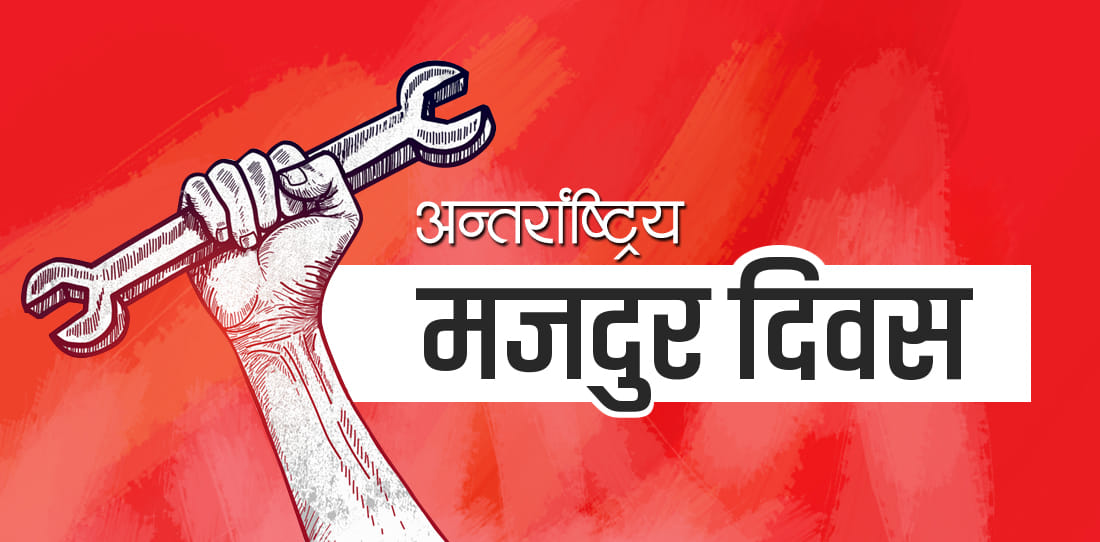

Nisha Khanal
England, United Kingdom – The first of May, also known as May Day, is the annual celebration of International Workers’ Day, a day dedicated to honoring the accomplishments and struggles of the labor movement and recognizing the pressing need to address contemporary challenges faced by workers worldwide. May Day commemorates the sacrifices made by those who fought for workers’ rights and serves as a call to action to continue advancing social justice, economic opportunity, and equality for all.
May Day’s historical significance can be traced back to the Haymarket affair of 1886 in Chicago, a pivotal event in the history of workers’ rights that led to the annual celebration of May Day. Workers in the United States and Europe fought for improved working conditions, fair wages, and an eight-hour workday, paving the way for global recognition of labor rights.
Since 2007, trade unions, labor organizations, and political parties have organized rallies and events to highlight workers’ issues and reinforce their commitment to labor rights in Nepal. Despite advancements in recent years, such as the 2017 Labor Act, the Nepalese workforce continues to face obstacles, especially in the informal sector, agriculture, and tourism industries.
The ongoing COVID-19 pandemic has highlighted the significance of May Day, as essential workers around the world have risked their lives to keep societies functioning. The pandemic has also revealed the disparities and vulnerabilities within labor markets, with workers bearing the brunt of economic downturns disproportionately.
As the world celebrates May Day, it is essential to acknowledge the difficulties faced by workers in the twenty-first century and to reaffirm our commitment to constructing a more just and equitable society for all. This requires not only addressing the immediate concerns of workers, but also planning for a future in which the principles of social justice, equality, and dignity for all are central to our economic and political systems.
Governments and the private sector must collaborate to ensure that labor laws and regulations are effectively enforced and that all workers, including those in the informal and gig economies, are protected. This will necessitate the strengthening of trade unions and labor organizations, as well as the promotion of social dialogue between workers, employers, and the government.
Second, investments in education and skill development are indispensable for empowering workers and fostering inclusive economic growth. By providing workers with access to quality education, vocational training, and upskilling programmers, we can equip them with the knowledge and skills required to navigate the rapidly changing labor market and secure decent employment opportunities.
Thirdly, addressing the concerns of migrant workers, whose remittances significantly contribute to Nepal’s economy, must be a top priority. This entails strengthening diplomatic ties with host nations, providing assistance and resources to workers in need, and advocating for their rights on the international stage.
To create a more equitable labor market, leaders must acknowledge and address the intersectionality of various forms of oppression, such as racism, sexism, and caste-based discrimination. This includes promoting equal opportunities, addressing wage disparities, and ensuring the safety and dignity of all workers, regardless of gender, race, or caste.
Lastly, it is crucial for the future of work to promote environmental sustainability and a just transition to a green economy. Governments and businesses should assist workers in their transition to new industries, invest in green jobs, and ensure that the benefits of a sustainable economy are distributed equitably to all workers.
As Nepal celebrates May Day alongside the rest of the world, let us remember the ongoing fight for workers’ rights and the significance of continued collective action. We can overcome the challenges faced by workers today and pave the way for a brighter, more equitable future for all by working together in solidarity. By recognizing the past and embracing the future, we reaffirm our commitment to upholding the values of social justice, economic opportunity, and equality in Nepal and beyond, ensuring that the sacrifices of those who fought for workers’ rights will not be forgotten and that their legacy will continue to inspire positive change throughout the world.














